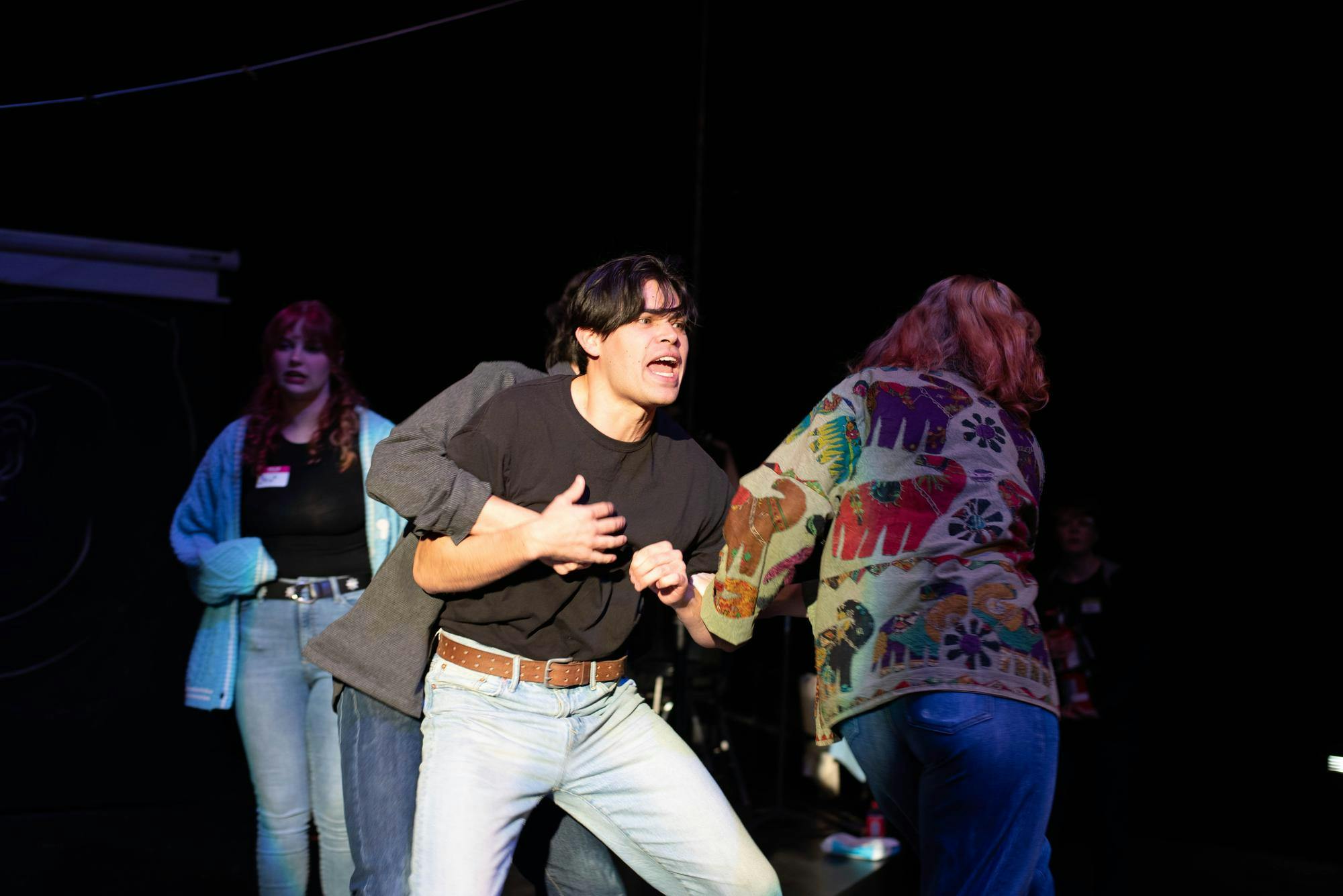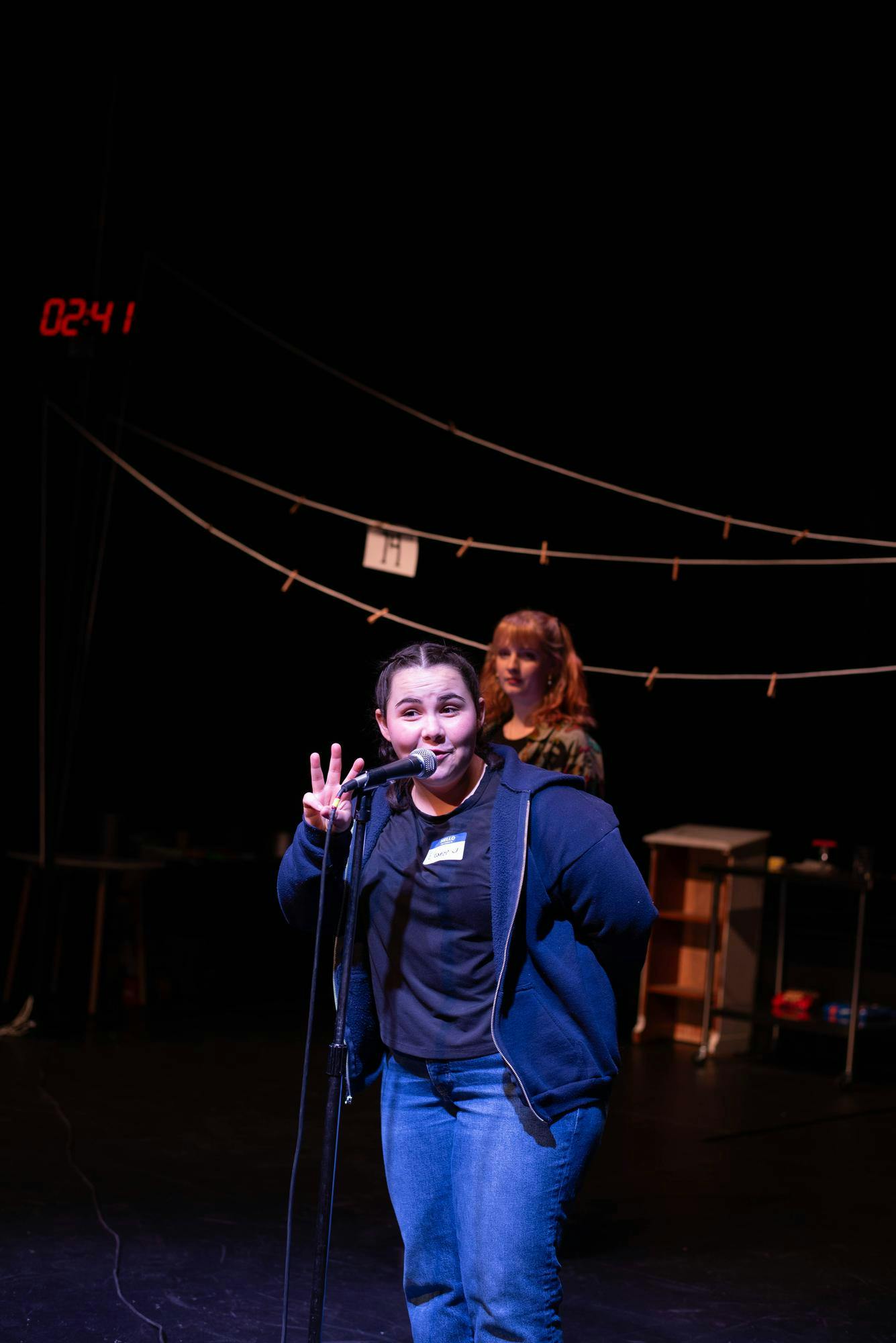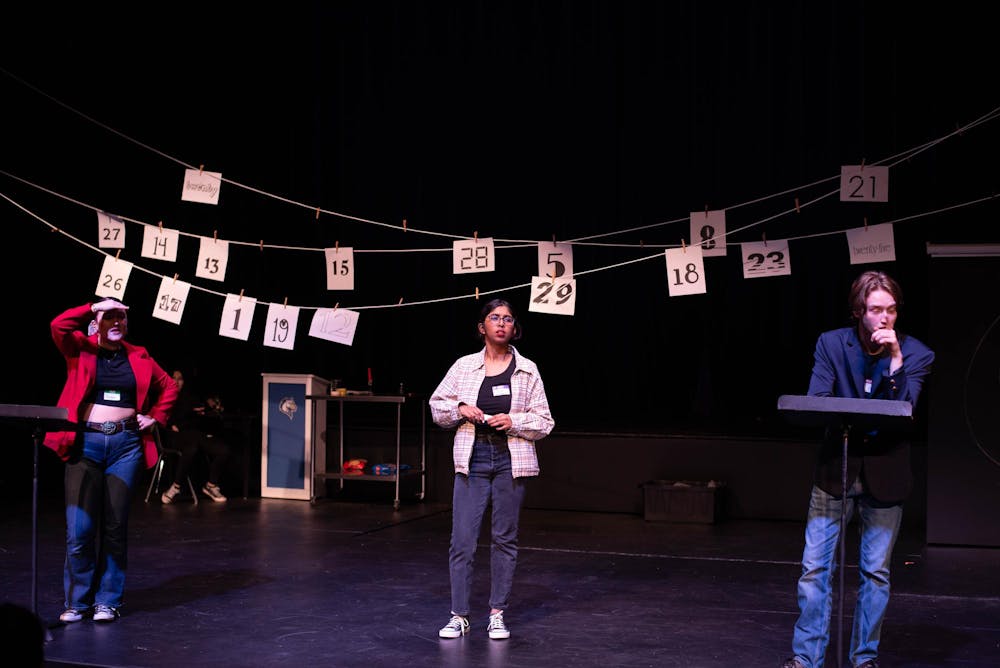UP Theater’s last performance of the semester, “Too Much Light Makes the Baby Go Blind (30 plays in 60 minutes),” begins the moment you enter Mago Hunt, where ushers greet you in the lobby and present you with a choice: purple or red.
A purple name tag means you’re willing to interact with the actors, and red means you aren’t. Not feeling adventurous that night, I chose red. Regardless of my pick, the uncertainty of what I was about to experience grew.
Running from Nov. 13-17 and Nov. 20-24 in the Mago Hunt Theater, “Too Much Light Makes The Baby Go Blind (30 plays in 60 minutes)” is a chaotic experience full of laughs and shocked audience members. The play, written by Greg Allen and directed by Assistant Professor of Theater Andy Christensen, follows neo-futurism and intends to step away from traditional theater experiences by not having characters or a linear plot.
The play is essentially a choose-your-own-adventure story. Before every scene, audience members yell out numbers corresponding to a clothesline of papers numbered one through thirty. Each number is a different scene, and whatever number is yelled out first or the loudest gets performed. The actors must try to get through each of the plays in 60 minutes, with a large digital clock counting down the time at the top of the stage.
I constantly laughed out of sheer awe at what the actors said or did, like when senior mechanical engineering major and actor Joshua Mager began counting down the start of the timer by listing off the names of his previous romantic partners.
This moment set the tone of the play: chaotic, spontaneous and amusing.
Importantly, actors approach these 30 scenes as themselves, not as characters, and the actions they take are a reflection of how they would realistically react to a given situation. This realism cuts back on the overly-produced feeling some performances have with rigid scripts and characters. None of the lines felt corny or inauthentic because the actors were free to improvise.

Student actor Ricardo Guevara during a scene from the play. Photo courtesy Emily Hogan by Rowan Lowery
The play started with scene 10, “Flight of Fancy,” where senior sociology and theater major Amber Rose Beeks practices her knife-throwing skills. She begins with a butter knife, moving next to a steak knife and ending with a machete in hand. At first, her throws were directed to a bullseye on a chalkboard, but the scene became nerve-wracking when another actor led a confused audience member to the chalkboard and told them to stand as a target.
Though nothing happened with the participant, I remained on the edge of my seat for the rest of the scene. While actors like Beeks put effort into their parts, the play wouldn’t be the same without its audience. The audience’s willingness to participate, whether being led on stage for an impromptu blind date or being sprayed with water guns, made the play all the more thrilling.

Student actor Eleanor Sells during a scene from the play. Photo courtesy Emily Hogan by Rowan Lowery
Once the knife-throwing scene was over and the next number was called, stage crews rushed to get the chalkboard out of the way and bring in a chair for first-year theater major Samuel Jacob Paci to sit on, where he could begin reciting a negative review of the play.
Meanwhile, other scenes involved more improvisation, like junior education major Eleanor Sells’ portrayal of working with a ridiculous director. Sells’ immediate compliance to tap dance while pretending to be stabbed and on fire while delivering her lines in a high-pitched voice shows how the actors were ready for anything — even the unexpected.
“Too Much Light Makes The Baby Go Blind” is nothing earth-shattering — you won’t leave Mago Hunt feeling like your life has changed — but you will leave feeling a little lighter.
With the impending doom of finals week and the anticipated stress of the holiday season, the play is a great distraction.
Samantha Zavala is a reporter for The Beacon. She can be reached at zavala27@up.edu








